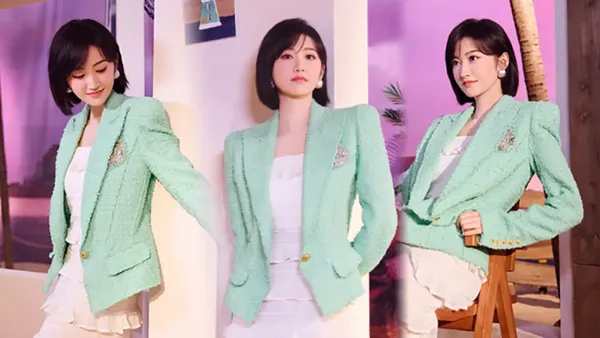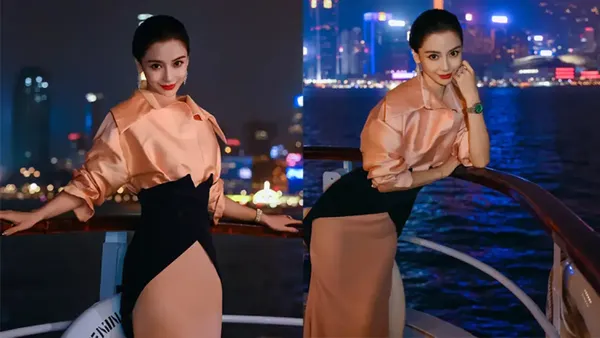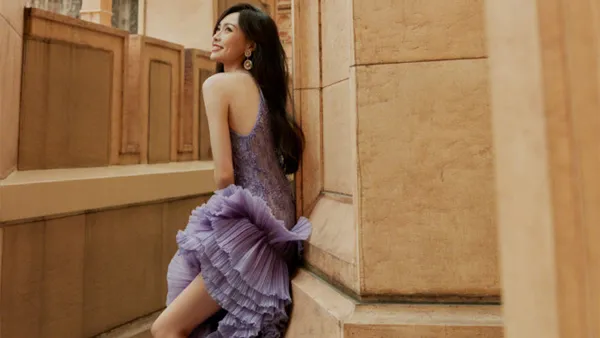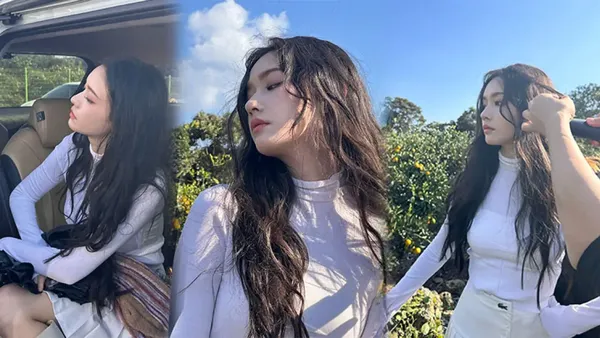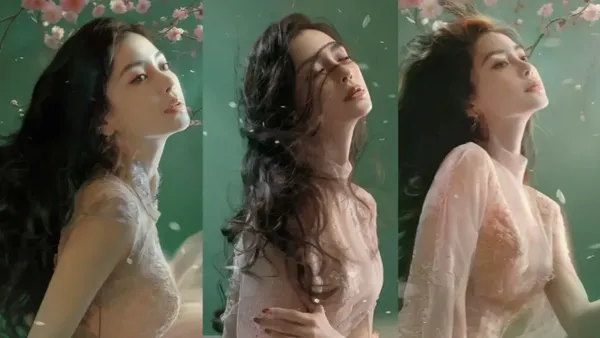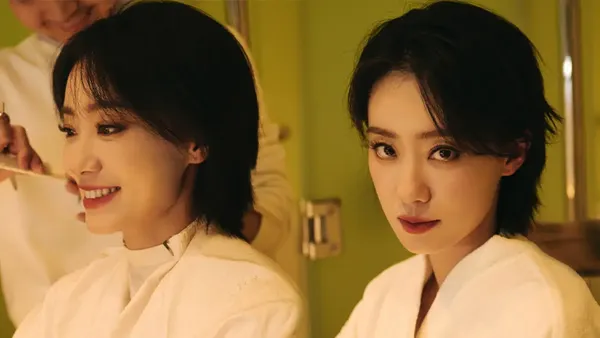Opening of the Open Class on Film Performing Arts at the 14th Beijing International Film Festival The charm of performance requires the joint achievement of directors and actors
Since the beginning of its birth, the creators of the film have naturally been divided into two categories: "in front of the stage" and "behind the scenes". The...
Since the beginning of its birth, the creators of the film have naturally been divided into two categories: "in front of the stage" and "behind the scenes". They write moving screen stories in their own ways, leading the audience on an intoxicating journey of light and shadow. As the representative of "in front of the stage" and "behind the scenes", the actor and director are undoubtedly the soul of a film, they work together to achieve the charm of performance, but also make the film really become the art of "storytelling".
In order to narrow the gap between the performing arts and the audience and help young directors and actors establish a more effective dialogue, the 14th Beijing International Film Festival held an "Open course on Film Performing Arts" for the first time. Liu Tianchi, director Liu Jiangjiang, and actor Huang Yao of the Central Academy of Drama were invited to share their professional experiences with the audience and deconstruct the core and true meaning of the performing arts.
▌ interprets fictional stories with a real attitude
Film is a fictional art, an art form that originates from life and is higher than life. The interpretation of fictional stories with a true attitude is a good way for several guests to choose.
Director Liu Jiangjiang shared his experience in helping young actor Yang en shape his role in the movie "the Great events of Life": "We used it for about 20 days, not to let her read the script, but to get her used to dialect." Then take her to play mahjong and square dance to make her more in line with the characters in the play. In fact, we didn't tell her about the script or what role it was before we turned it on. We just made her look more like a child raised by a grandmother. "
![] (https://www.bjiff.com/ywzx/202404/W020240424381548319943.jpg)
Liu Jiangjiang
Talking about how to persuade actor Zhu Yilong to act in "the Great events of Life", Liu Jiangjiang said that all he could do was to revise the script over and over again. "I think our script moved him." In order to let Zhu Yilong and Yang Enyou collide with each other, Liu Jiangjiang said that Zhu Yilong deliberately created estrangement in order to help enter the play and brew emotions, thus stimulating Yang Enyou's true feelings.
Actor Huang Yao also moved director Zhang Lu with a "true attitude", thus getting the chance to star in the Light of the White Pagoda. When interviewing for the Light of the White Pagoda, there was no formal audition and other routine procedures. She met with Director Zhang Lu in the most natural way in a cafe and communicated with Director Zhang Lu in a state closest to her true state. In her words: "I know director Zhang Lu's works, he is very natural, very life-oriented style, so I think he also wants to see the most real and natural side of me."
![] (https://www.bjiff.com/ywzx/202404/W020240424381548317700.jpg)
Event site
As a veteran teacher in the field of performing arts teaching for more than 30 years, teacher Liu Tianchi also stressed the importance of "true attitude": "whether they are future young directors or our young actors, in the most authentic way, you may have a better chance to step into the art of film."
▌ trusts and achieves each other.
The way directors get along with actors has always been a favorite topic in the industry. As the person who interprets the role, the character he wants to create comes from the heart of the director, is the projection of his spiritual world, and inevitably bears the brand of the director himself. But at the same time, actors must deeply experience, comprehend and pour into their own understanding of the role when shaping the role. When it comes to the complex relationship, teacher Liu Tianchi's secret is "trust". "if a director cannot fully trust the actor of his choice, there is no way to continue the later cooperation."
Actor Huang Yao also confirmed Professor Liu Tianchi's point of view with his own experience. "Trust is very important to me," she admitted. I feel their trust in me from the director, which is my greatest source of confidence as an actor. " At the beginning of her career, the biggest difficulty Huang Yao faced was her lack of self-confidence, which made it difficult for her to concentrate on acting on the set. "I always feel that someone is watching me and judging me, but I know that I am actually judging myself." After constantly feeling the director's trust in her, she gradually threw away the eyes of her own trial and began to try her best to play the role and enjoy the process of acting.
For young actors, Professor Liu Tianchi put forward a humorous and straightforward suggestion: "Young actors, please keep your mobile phone away from you on the set as soon as possible." Ask yourself, 'what am I going to do now?' and leave the right of monitoring and evaluation to the director. "
![] (https://www.bjiff.com/ywzx/202404/W020240424381548310698.jpg)
Liu Tianchi and Huang Yao
Director Liu Jiangjiang also shared his tips in telling actors: "I will focus on the previous history of this character, rather than telling stories in general." What the character did before and why he did it now are all useful information for actors. "
▌ impromptu performance instructor
Acting is never on paper. For actors, shaping roles in prescribed situations is the "frontline battlefield" of this profession. In this open class on performing arts, Professor Liu Tianchi solicited two propositional situations from the audience: "A friend's road is narrow when applying for a job" and "the gold bracelet is lost", and invited young actors and actresses to take part in the performance.
![] (https://www.bjiff.com/ywzx/202404/W020240424381548313246.jpg)
The audience performed impromptu
After the performance, the three guests gave the actors pertinent comments and suggestions.
Director Liu Jiangjiang said that the most important thing for a director is to issue a clear "task" to his actors: "first of all, we should complete the screenwriting and give the actors more fulcrum. For example, did you succeed in applying for the job in this play? In fact, we have to give the actors a task. I think we need more information to give the actors. "
"when auditioning, the director should understand that as an actor, he needs more specific information." Teacher Liu Tianchi said: "when this information is given to actors, they will have a target and must go there." When we arrived on the set, two strange actors happened to get the same scene. If the scene started as a stranger relationship, then it's no problem. I don't need to know you, because I just need to know you on the spot. But if I give a very complicated pre-character relationship, and two people have a problem with each other, I have to know everything about you. No matter when, first determine the character relationship, and then resolve the relationship with the rival actors. "
Actress Huang Yao also cited director Zhang Lu's guidance to her during the film "Light of the White Pagoda" as an example to talk about the importance of "mission": "Director Zhang Lu may suddenly say, 'Huang Yao, later you take off your hat and put it on the table.' This is based on the character of her character, her usual style of doing things will make her suddenly make this move. "
At the end of the activity, teacher Liu Tianchi summed up the impromptu performance: "be sure to remember the 'task'. Only on the premise of absolutely believing that you are going to complete the 'task' will you be able to understand what others have said, what I am going to do, and what may be changed. The director gave you this' task', so in this situation, you can only believe in the 'task'. "
The role of ▌ is king.
As the core role in a film, the director plays an important role in guiding the actors to shape the characters. It is the cooperation between the director and the actors that makes the performing arts attractive. So does the director have to be able to act? In the face of questions from the audience, several guests also gave their own views.
Director Liu Jiangjiang joked that he couldn't act, but he also became a director: "I think his job is to make a choice, and a good director is sure that his choice is the most important, whether in terms of aesthetics or 'degree'." Not all directors are good actors. "
![] (https://www.bjiff.com/ywzx/202404/W020240424381548318321.jpg)
Audience interaction
Professor Liu Tianchi agreed with director Liu Jiangjiang's point of view: "all over the world, directors can be divided into two types: 'those who can't act but know how to act' and 'who know how to act at the same time'. Both the director and the actor are the most important partners of the second creation. In the end, both of them have to understand the play, people and image. Only under this premise can a good working state be built between the director and the actor. The director may not be able to handle the performance accurately, but he must understand the behaviors of normal life, as well as the emotions in human nature. He has to be very sensitive to communicate with the actors. The director should not simply be a philosopher, but should also be an expert in firewood, rice, oil, salt, soy sauce and vinegar tea before he can have chemical reactions with actors. "
It comes from life, not just from life; it begins with acting, not just from acting. At the Open course on Film Performing Arts at the 14th Beijing International Film Festival, the three guests shared not only their experience, but also their professional attitude-professionalism, concentration and concentration on the screen. Let's look forward to the opening of the Open course on Performing Arts and listen to wonderful stories both on and off the screen.
 白羊座
白羊座 金牛座
金牛座 双子座
双子座 巨蟹座
巨蟹座 狮子座
狮子座 处女座
处女座 天秤座
天秤座 天蝎座
天蝎座 射手座
射手座 摩羯座
摩羯座 水瓶座
水瓶座 双鱼座
双鱼座
